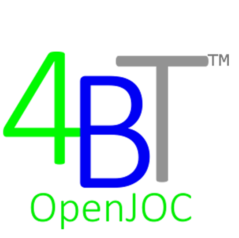JOC PROCEDURES FOR ORDERING WORK 
Initiation of a Job Order
- Contract Administrator notifies the Contractor of a Project, schedules a Joint Scope Meeting, and issues a Notice of Joint Scope Meeting. Contractor attends the Joint Scope Meeting with owner JOC Project Manager and discusses, at a minimum:
- general Scope of the Work (SOW) to be performed,
- alternatives for performing the work and value engineering,
- access to the site and protocols,
- hours of operation,
- staging area and areas that are off-limits,
- requirements for documentation – technical data, samples, BIM models, drawings,
- requirements for professional services, sketches, drawings, and specifications,
- construction duration, due date for Detailed Scope of Work and contractor’s line-item proposal,
- presence of hazardous materials,
- applicable Federal, County, State, and/or local regulations, requirements.
Request for Proposal
- Contract Administrator issues a Request for Proposal (RFP) to JOC contractor (alternately process can require contractor to submit a draft detailed SOW for owner review prior to issuance of RFP). Proposal form contractor is due within established timeline.
- Contractor prepares/updates Detailed Scope of Work referencing any sketches, drawings, photographs, and specifications required to document accurately the work to be accomplished and prepares a detailed line-item proposal of the planned work activity using the current unit price book (UPB). It is the Contractor’s responsibility to include the necessary line-items and quantities in the Proposal and apply the appropriate Adjustment Factor(s) prior to delivering it to the Owner. Both Owner and Contractor review proposal based upon the detailed SOW. If the Contractor requires additional information to clarify the Detailed Scope of Work before preparing the Job Order Proposal, the Contractor will make such request so that the Job Order Proposal can be submitted on time. Contractor proposal is prepared and submitted with the JOC System and includes:
- Line-items for all require construction task as selected from the UPB, and associated quantities
- Any required documentation and/or forms
- Any associated subcontractor information
- Schedule
- Justification for any non-pre-priced line items
- Totals, without and with associated adjustment factor/JOC coefficient, and totals of priced and non-pre-priced line-items
- Owner reviews and approves/rejects Contractor’s proposal. The Owner evaluates the entire Contractor’s Proposal and compare these with the Detailed Scope of Work and the Owner’s estimate if completed and/or otherwise determines the reasonableness of approach, including the appropriateness of the line-items and quantities proposed. The Owner’s review includes the pre-priced Tasks, quantities, adjustment factors/co-efficients, and non-pre-priced tasks. If rejected, the owner can discuss modifications required for a new proposal with the Contractor.
Execution
- Owner issues a Notice to Proceed
- Contractor set up a kick-off meeting and mobilizes
- Owner regularly inspects the site
- Contractor issues a notification of substantial completion and submits appropriate documentation for project close-out
- Owner conducts final inspection and issues final notice of substantial completion (or owner creates a checklist of items required for completion)
Note: Change orders should be mitigated via the job order process, however, an owner-defined process within the contractor outlines how changes in the Detailed Scope of Work are to be handled, such as by adding to, changing, or deleting from the Detailed Scope of Work, by issuing a Supplemental Job Order or a Change Order. All Supplemental Job Orders follow the same workflow and procedures as the original work order.

Glossary
Adjustment Factor: Approved factor/JOC co-efficient for the associated work order/project and contract.
Change Order (CO): Any subsequent change in the work to the initial construction job order/workorder proposal as accepted which has been subsequently authorized by the Owner and issued to the Contractor.
JOC Administrator / Procurement Officer: Procurement professional of record for the government entity, responsible for Job Order Contract administration.
Non-Prepriced Line-item (NPP): A line-time cost/task not found in the current unit price book, but within a JOC proposal. A limit of 10% of the total cost of a proposal is imposed within Job Order Contracts and contracts must supply associated required support information, such as independent quotes for the item(s).
Pre-priced Line-item/Task: A line-time found within the current and approve unit price book for the associated work-order/project
Task Order, Job Order: Individual projects/work orders performed under the umbrella procurement.
Unit Price Book (UPB): A web or server-based compilation of detailed construction task listings with pre-set prices individual line-items for each unit of work (unit price) establishing the basis of each job order/work order/project assignment.
“Culture change requires company leaders who lead by example. It is impossible to push cultural change if toxicity, noncompliance, and distrust remain at the top. Additionally, leaders need strong personal values, such as humility and accountability, to support the values of their organization and drive change.
Lastly, change involves processes and measurement. Without measuring change, how does one know if the team is moving forward? Agree on what a ‘good’ culture looks and feels like, then determine the KPIs by which it will be measured.”
- Nathan C. Wood
 www.4bt.us
www.4bt.us
